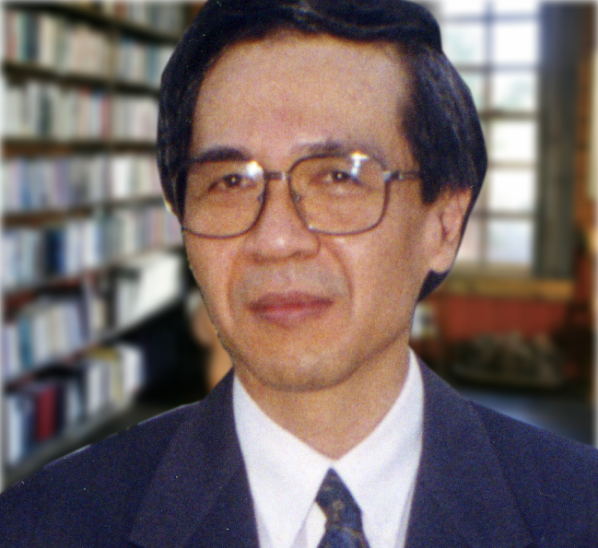National economies grow unevenly. As Southeast Asia’s powerful centers surged ahead in recent decades—Bangkok prominently among them—they captured the lion’s share of capital and jobs and new opportunities. To rural areas the new wealth trickled down all too slowly, all the more so after the region’s long sustaining boom ended abruptly in 1997. Thai business leader SOPHON SUPHAPONG thinks that economic growth that neglects the countryside is unhealthy. As president of Bangchak Petroleum, he has been stimulating Thailand’s economy where he believes it matters most: at the roots.
Born in 1946, SOPHON spent part of his boyhood in Thailand’s rural southern provinces where his father served as governor. Despite its elevated status, the family was extremely frugal. This was necessary because SOPHON’s father refused to augment his meager government salary by accepting bribes and other illicit sources of income. “Honesty,†he taught his son, “is the highest honor of a man’s life.†Later, when for many years SOPHON’s father lay helpless in the hospital with a debilitating nerve disease, SOPHON asked himself, “After a man dies, what is left of his name?†This thought, he says, “established my way of life.â€
SOPHON studied electrical engineering at Chulalongkorn University and then entered the petroleum industry. In 1980, he was appointed deputy governor of the Petroleum Authority of Thailand and assigned to manage a debt-laden oil refinery belonging to the government. At the time, it was losing three million baht a day. SOPHON reorganized the company and restored it to profitability. Renamed Bangchak Petroleum, it was soon one of Thailand’s leading oil providers. SOPHON was named president in 1985.
Eager to expand Bangchak’s distribution network and, at the same time, to enliven the rural economy, SOPHON began recruiting agricultural cooperatives to be owner-operators of his company’s service stations. To help them, he guaranteed loans for purchasing Bangchak franchises and sent his managers to teach neophyte dealers how to run the new businesses. Today, cooperative societies, women’s groups, and other community organizations throughout Thailand own and operate six hundred of Bangchak’s twelve hundred service stations. Many have also branched out into other Bangchak enterprises such as petroleum delivery, clothing manufacture, and service-station convenience stores called Lemon Green. Moreover, farm-fresh produce is now available at many Bangchak outlets. Over a million Thai households are now involved in these money-making enterprises. Bangchak Petroleum has also profited from SOPHON’s unconventional strategy. As one admirer puts it, “Bangchak’s national distribution network is the envy of its rivals.â€
Under SOPHON’s direction, Bangchak also promotes conservation and environmental awareness in Thailand and is a leader in sponsoring public interest television programs. When the country’s new reform constitution was being formulated in 1997, SOPHON fostered public debate by using Bangchak’s network of service stations to distribute the draft constitution nation wide. As a private citizen, he is preoccupied with issues of poverty, child abuse, and his country’s democracy.
SOPHON shuns the social whirl of Bangkok in favor of his many causes and the quiet haven provided by his wife and two daughters. In the current economic crisis, he worries about ordinary Thais. As government-owned Bangchak faces privatization, SOPHON fervently asserts that the company’s new owners should be Thais–even better, rural Thais. “Economic power that lies in the hands of only five percent of society . . . is not healthy,†he says. A healthier economy for Thailand’s future will be based on “many small businesses†throughout the country—businesses much like Bangchak’s rural gas stations and mini-marts.
In electing SOPHON SUPHAPONG to receive the 1998 Ramon Magsaysay Award for Public Service the board of trustees recognizes his stimulating Thailand’s rural economy by helping hundreds of rural cooperatives and community organizations own and operate their own businesses as affiliates of a major Thai oil company.
It is a great honor for me to receive the Ramon Magsaysay Award. To receive the Award is also a source of pride to those who share my work in Public Service.
Also I would like to take this opportunity to join all the people of the Philippines to commemorate the birth anniversary of the late President Ramon Magsaysay, your great leader. His spirit will continue to be an inspiration to all of us.
The Ramon Magsaysay Award has been recognized by the world community. The Foundation’s commitment to public service and underprivileged peoples has proven to be a good example for the contemporary and the next generations.
It is my belief that to help people in need, particularly those underprivileged people and children in poor neighborhoods and rural areas, is everyone’s responsibility as human beings. To support the rural people by operating businesses together with them through their Community Organizations makes good sense for both humanitarian and business considerations. It is hoped that such cooperation will be beneficial to both business and rural communities. While business flourishes, rural communities also develop and prosper.
Business operations should not simply be “business for business’ sakeâ€. The business community should also strive to promote the togetherness of family members—children and parents, husbands and wives, young and elderly people—and to provide opportunities for underprivileged people in rural areas to increase their income in a better environment. It should also work to advance social justice. Indeed, if all of us truly devoted ourselves to helping each other, it is certain that the underprivileged and weaker members of society, especially children, will be provided for. This is what we are striving for in creating a strong civil society.
I would like to express my gratitude and sincere thanks to those who have been supportive of my work and all the people of the Philippines, especially members of the Ramon Magsaysay Award Foundation for their warm hospitality.

